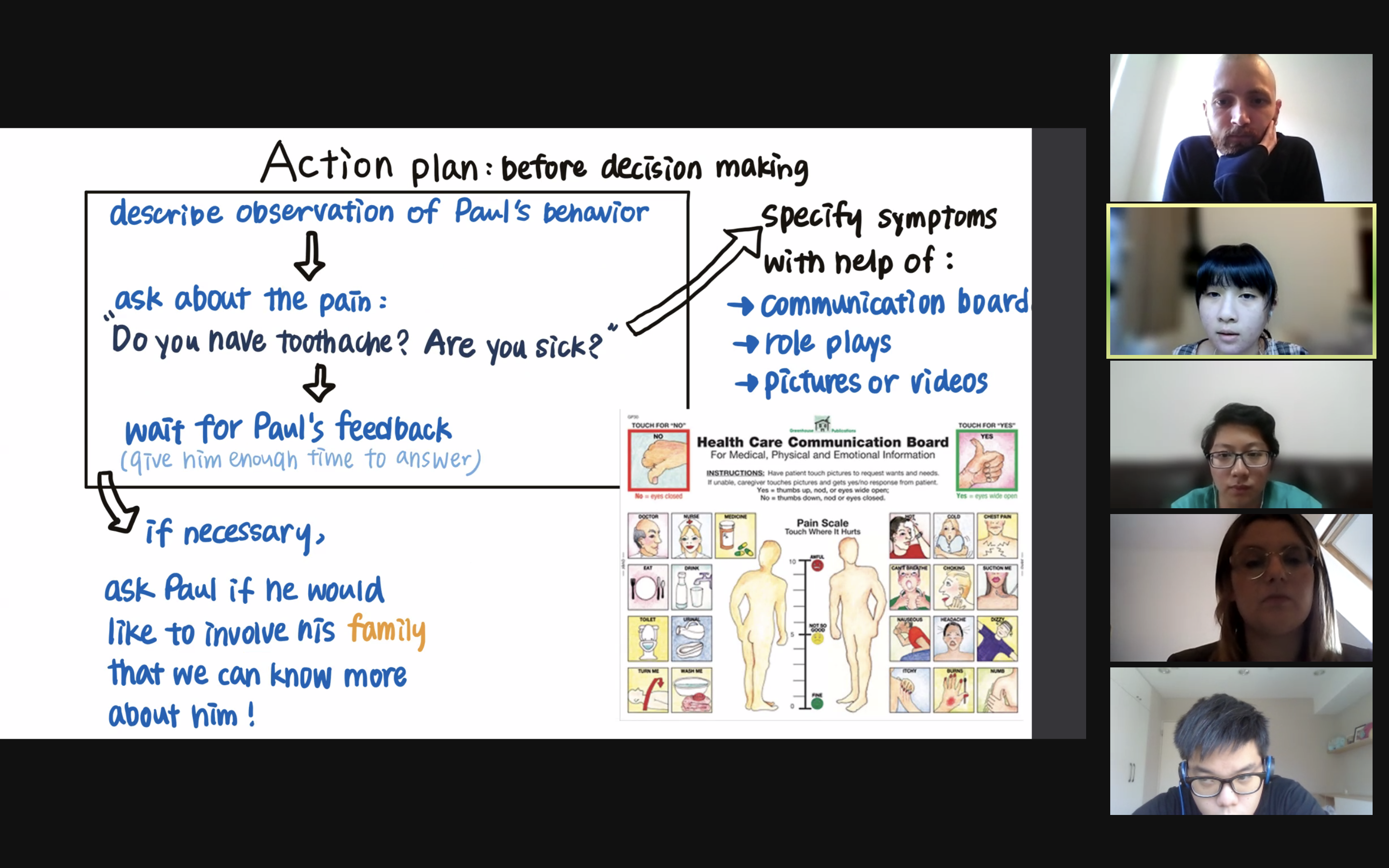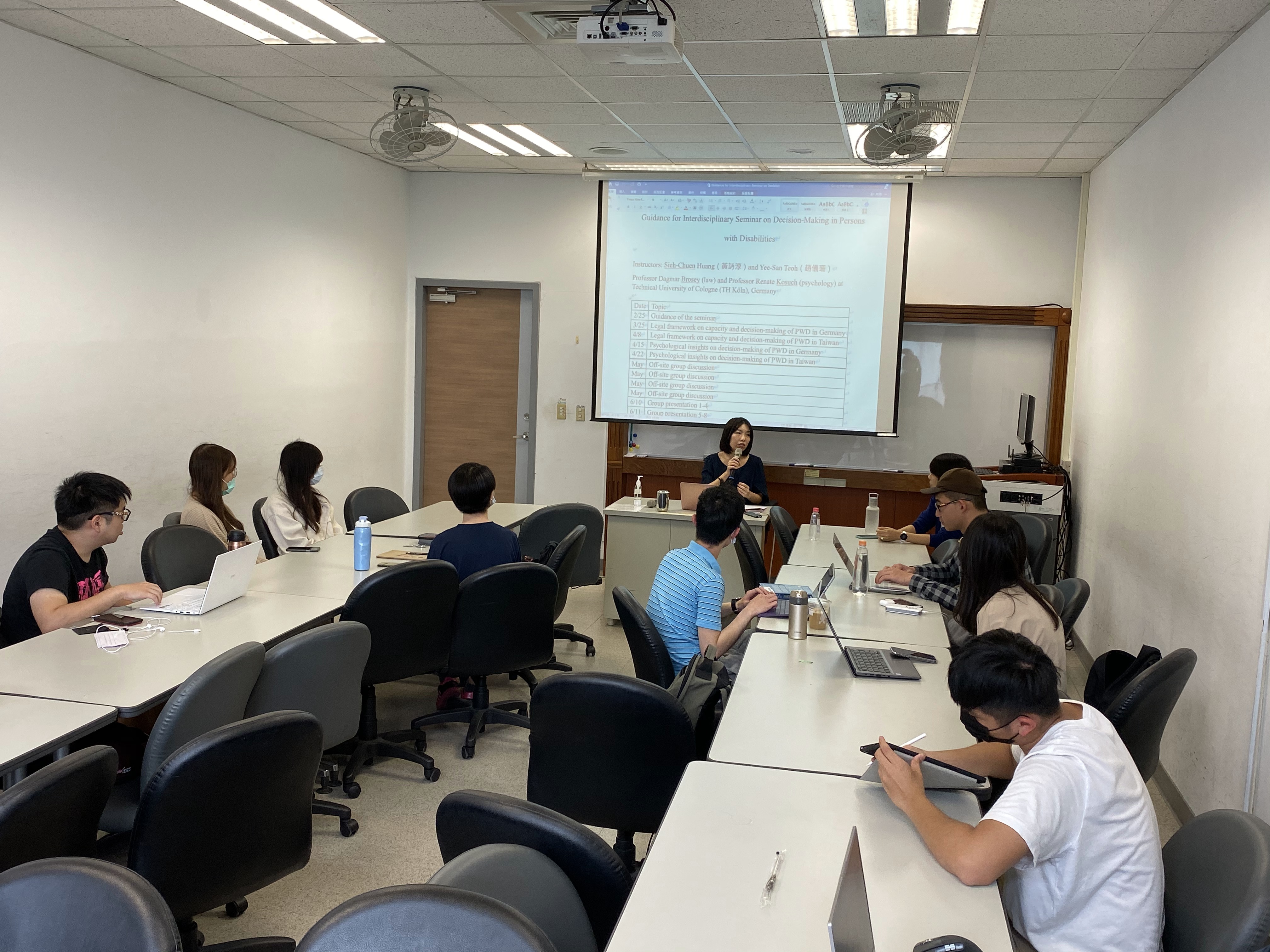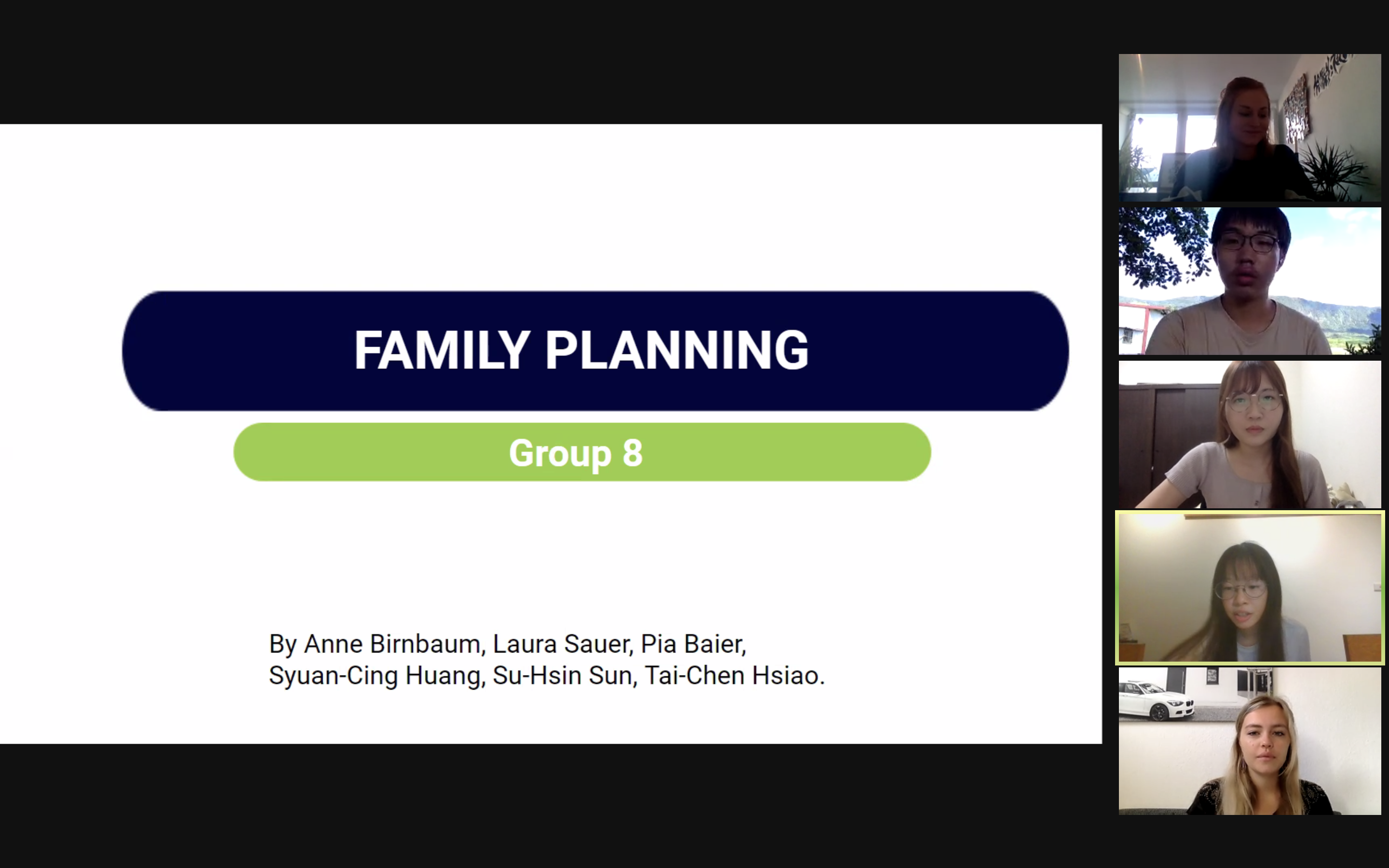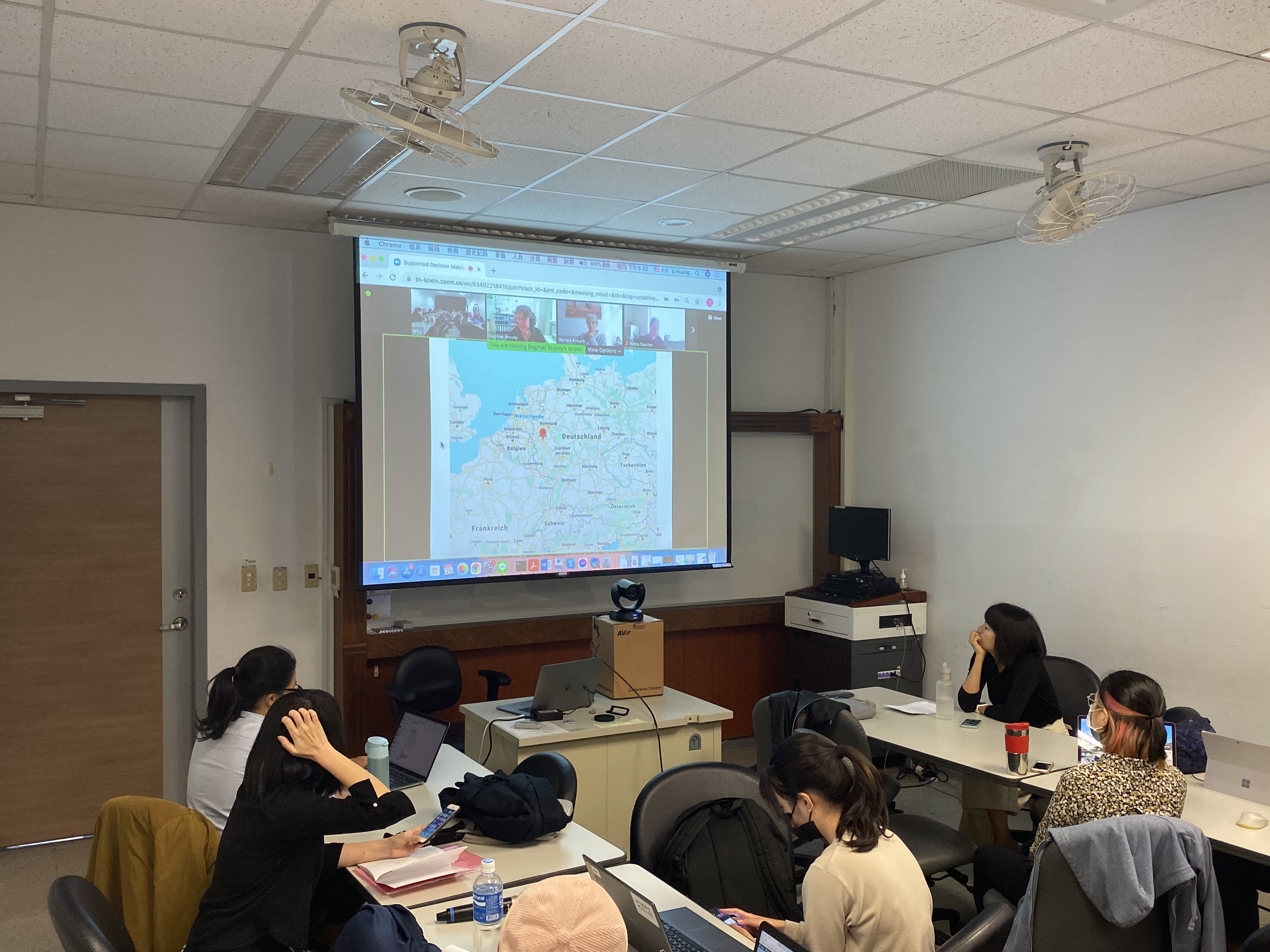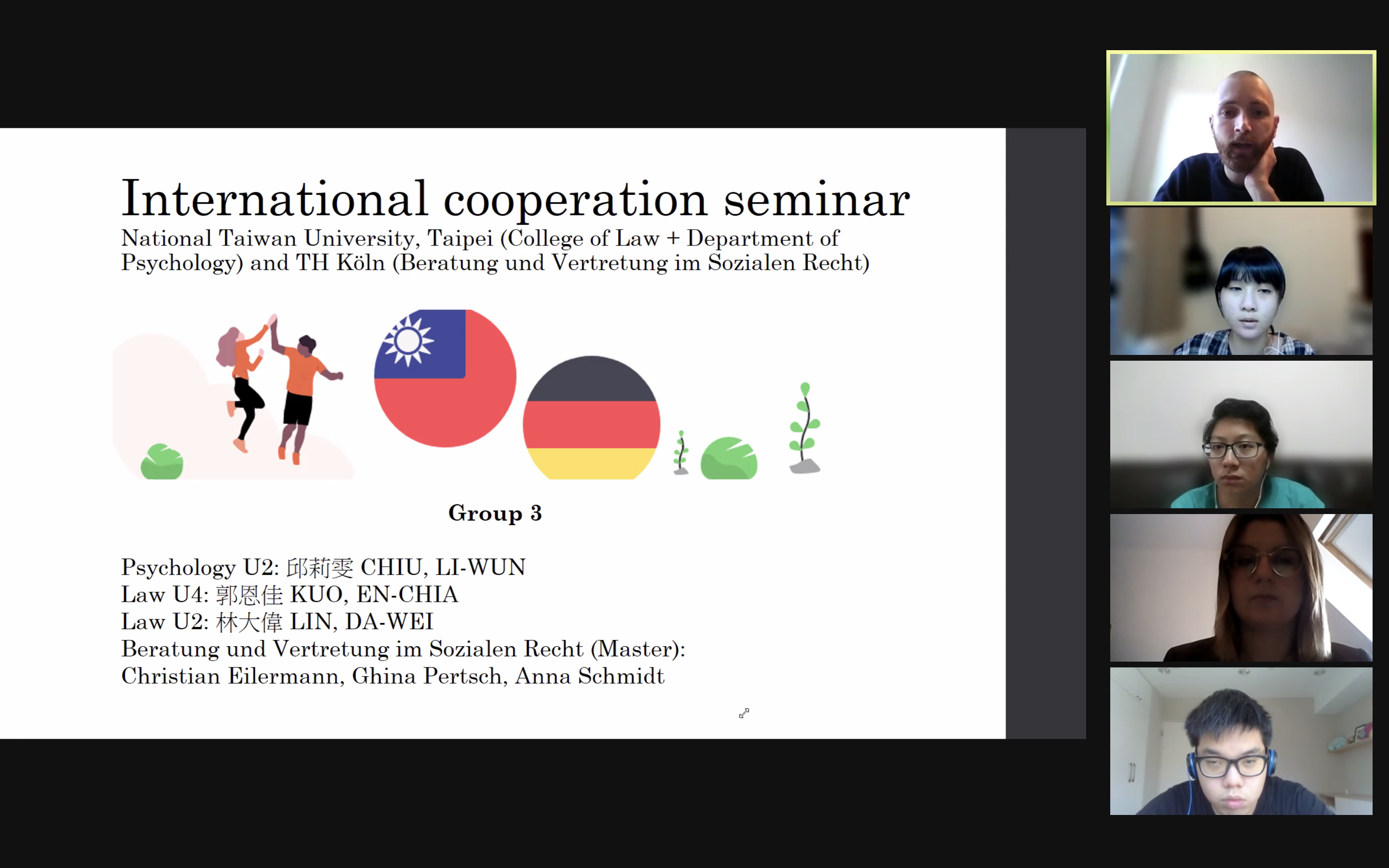Class Mentors
This Class, Interdisciplinary Seminar on Decision-Making in Persons with Disabilities, was co-taught by Sieh-Chuen Huang (law) and Yee-San Teoh (psychology) at NTU, Taiwan and Dagmar Brosey (law) and Renate Kosuch (psychology) at TH Köln (Technical University of Cologne), Germany. In addition to the unique combination of instructors, we had 24 students from NTU and TH Köln respectively, including law, psychology and social work, of which the diversity highlights this seminar.
This interdisciplinary and international seminar aims to facilitate future legal professionals, psychologists, and social workers with critical thinking and cognitive flexibility. When dealing with legal issues related to persons with disabilities (PWD), it is necessary to communicate with the principal, family members and other professionals. An important component of this course is to enhance the experience in co-working with experts from different fields on these scenarios: supporting PWD in decision making, adult protection, supporting families and child protection. We pushed students to think from the perspectives from two disciplines –law and psychology, tackle problems in legal capacity and supporting PWD, and learn to exercise cognitive flexibility by discussing with their counterparts.
Acknowledgements: the UFO Project (University FOresight Education Project, MOE, Taiwan).
Prof. Dr. Siehchuen Huang
This is the first time I organized an interdisciplinary and international seminar with three intelligent and thoughtful collegues. We explored several topics on decision-making and went through meaningful discussions together. I really appreciate this experience.
Sieh-Chuen Huang is a professor of civil law, the College of Law at NTU. She received her BA of Laws from NTU, Taiwan and the MA, Ph.D. from Hokkaido University, Japan. Her research interests on family law, guardianship, trusts and estates, and intergenerational property transfer in aged society, and also legal analytics, machine learning and AI in law.
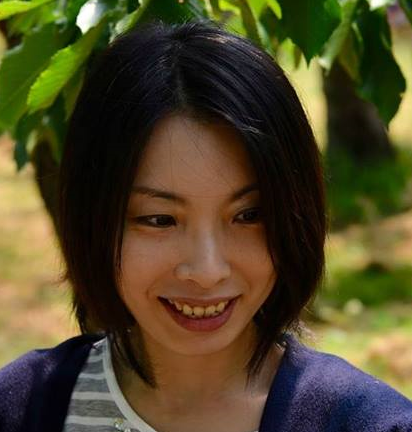
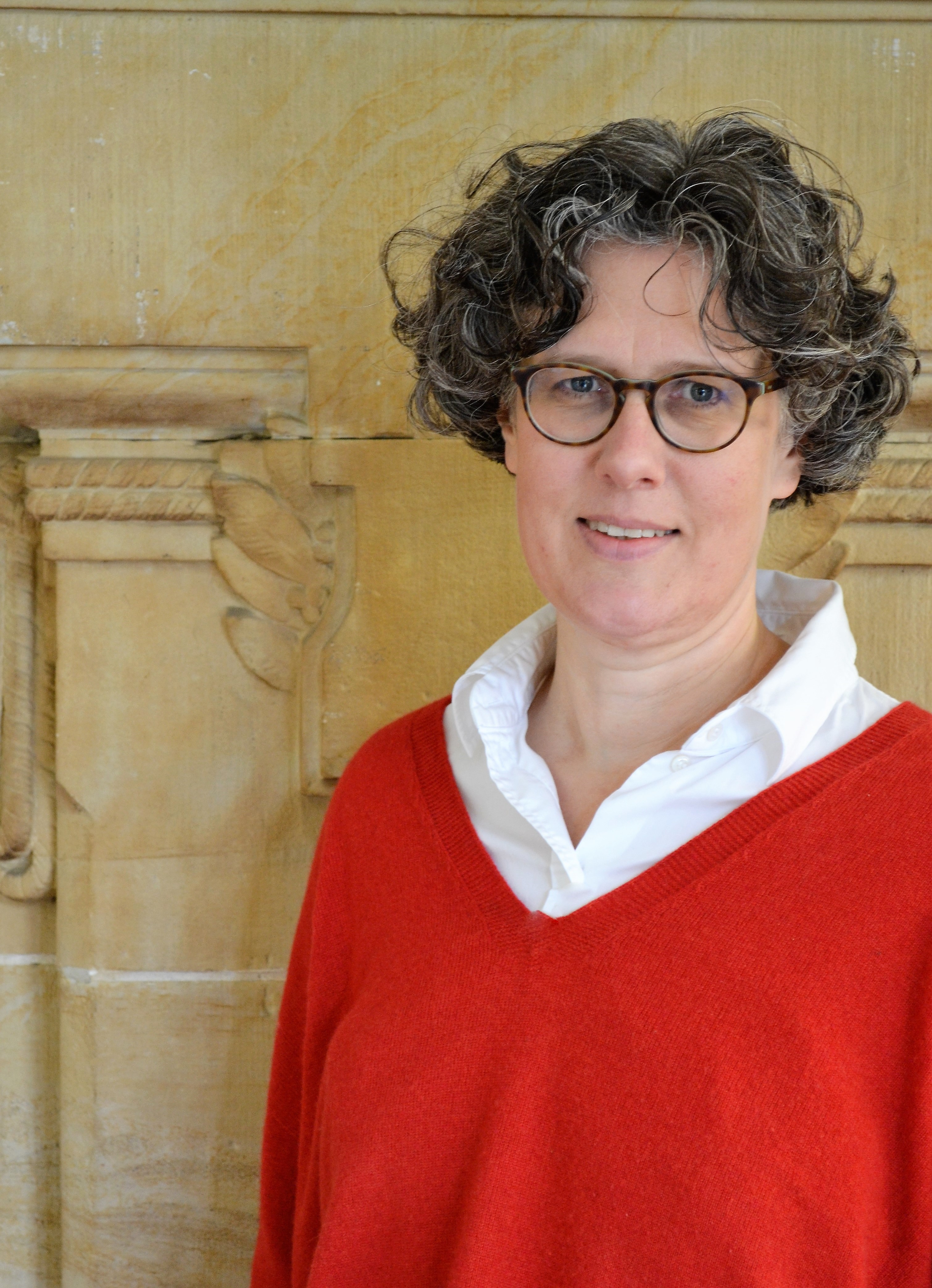
Prof. Dr. Dagmar Brosey
This seminar brought together people from very distant places to learn from and with each other, to exchange ideas and approaches. It was fantastic to be part of this process.
Dagmar Brosey is a Professor for Civil Law, specialised in Family Law at Cologne University of Applied Sciences (TH Köln Germany). Since 2020 she is Deputy Dean of the Faculty of Applied Social Sciences.
She is doing research with the focus on autonomy and self-determination in adult protection law. She is the author of various articles and reports focusing on issues concerning self-determination, supported decision-making, legal capacity, advanced directives and legal representation in the context of German Law of BETREUUNG, mental health care and long term care.
Dagmar is a member of board of the German Association for BETREUUNG (BGT) und the editor-in-chief of Journal of German Law of BETREUUNG and practice (BtPrax).
She was one of the heads of the research team who conducted the study Quality in BETREUNG missioned by the Federal Ministry of Justice and Consumer Protection.
Prof. Dr. Yee-san Teoh
This course transcends discipline, culture, language, and identity. Together, we learn to communicate better.
Dr. Yee San Teoh is Associate Professor at the Department of Psychology at National Taiwan University. Her areas of specialization are Developmental and Forensic Psychology. She is particularly interested in identifying best practice interviewing methods with children and persons with intellectual disability. Dr. Teoh regularly provides specialized training in investigative interviewing to legal, social work, and medical professionals. She is also a registered intermediary who assists prosecutors and the criminal courts with the questioning of vulnerable victims and witnesses.

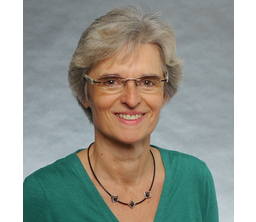
Prof. Dr. Renate Kosuch
A wonderful experience of bringing together students as well as supporting cooperation and the ability to look at things from different perspectives.
Professor Renate Kosuch is a graduate psychologist and professor of social psychology at the Faculty of Applied Social Sciences, TH Köln (University of applied sciences). She is co-director of the master's program “Counseling and Advocacy in Social Law”.
She received her diploma and doctoral degree from University of Hamburg. Trained in person-centered psychotherapy, she is member of the scientific advisory board of the Society for Person-Centered Psychotherapy and Counseling GWG e.V.
Her main research and teaching areas are communication psychology; Supported Decision Making (SDM) and relationship quality in Adult Betreuung(stressing the compliance with UNCRPD) ; shame; gender; communication psychology; mental self-regulation and serenity promotion.
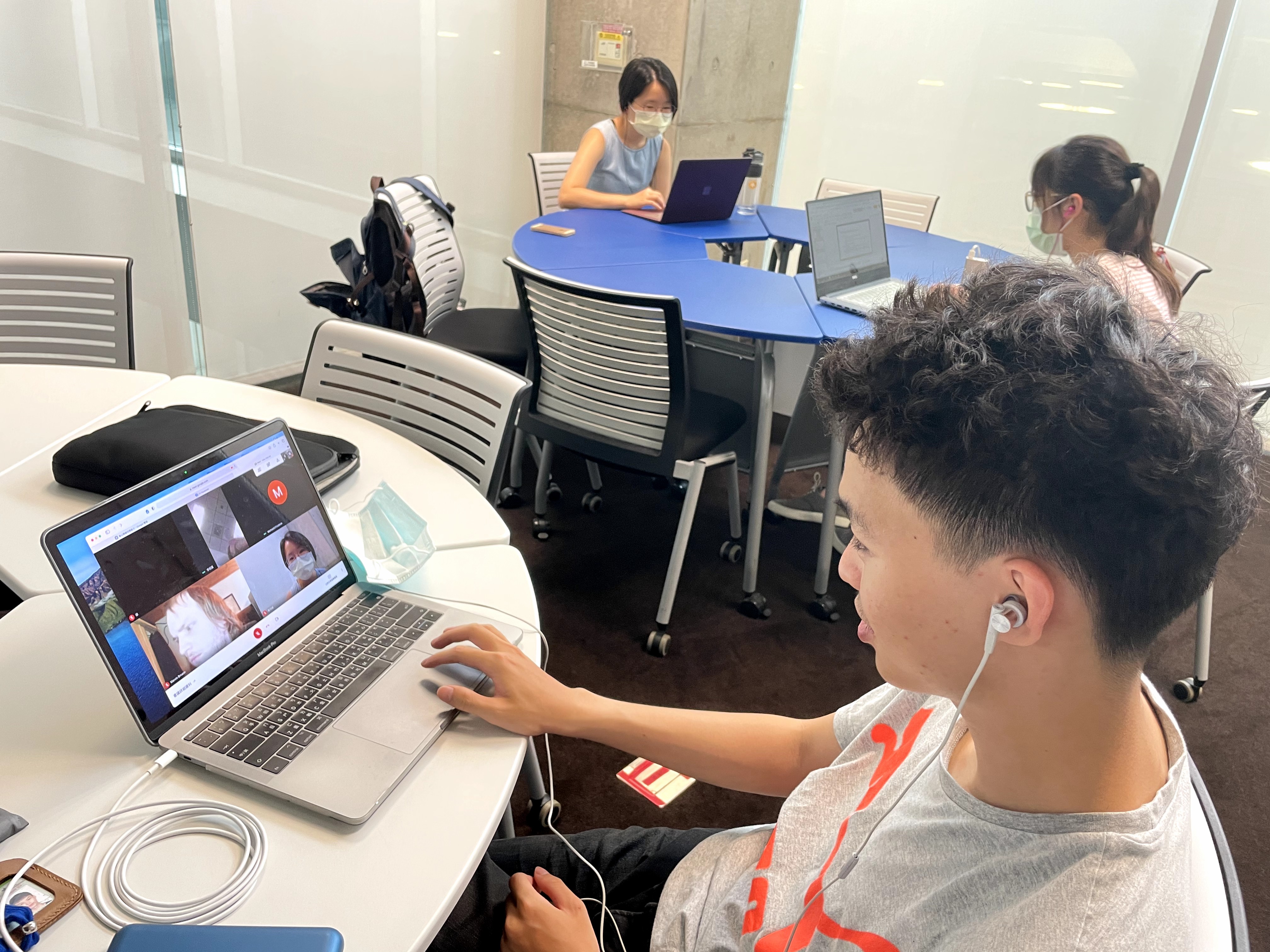
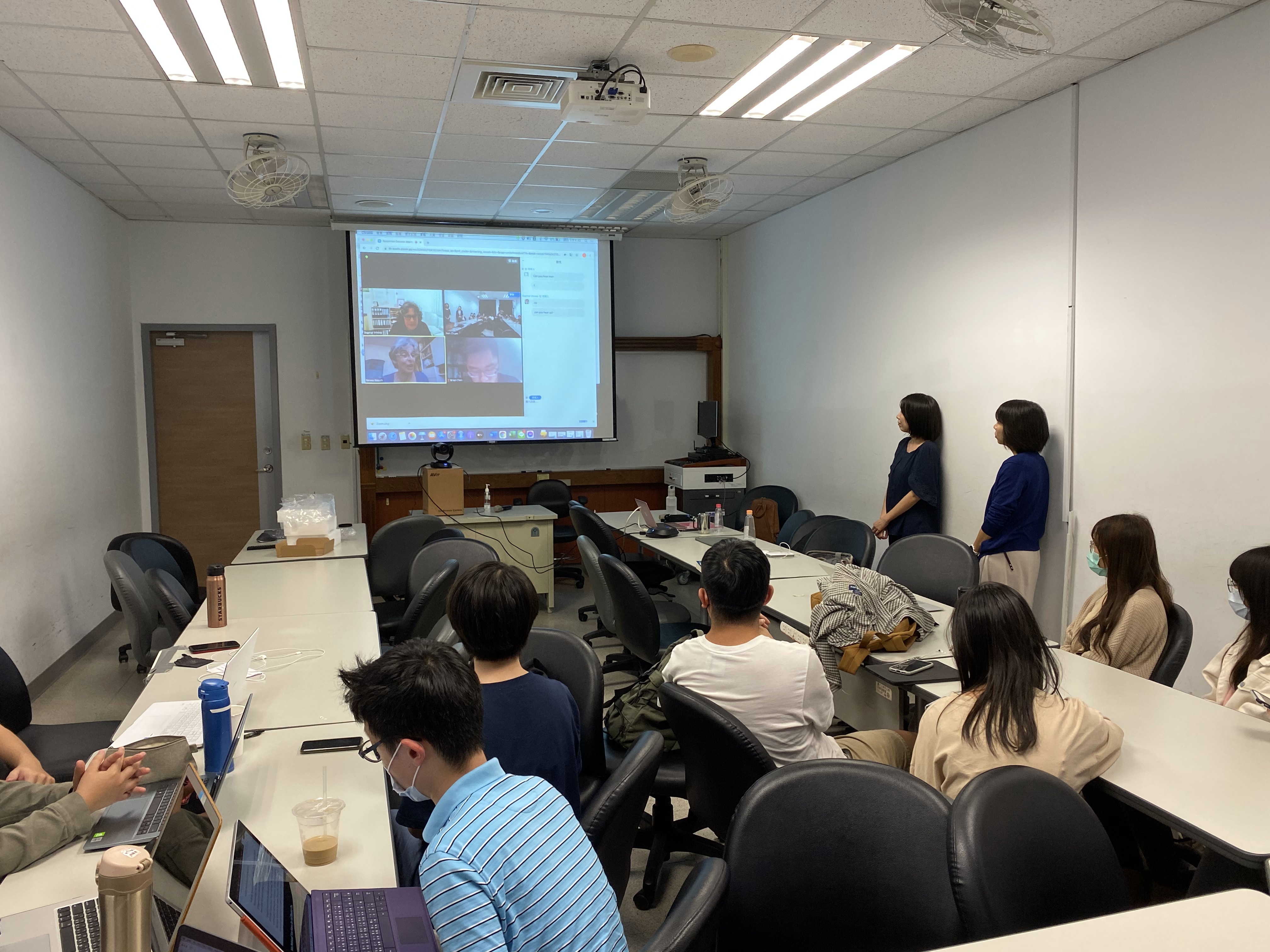
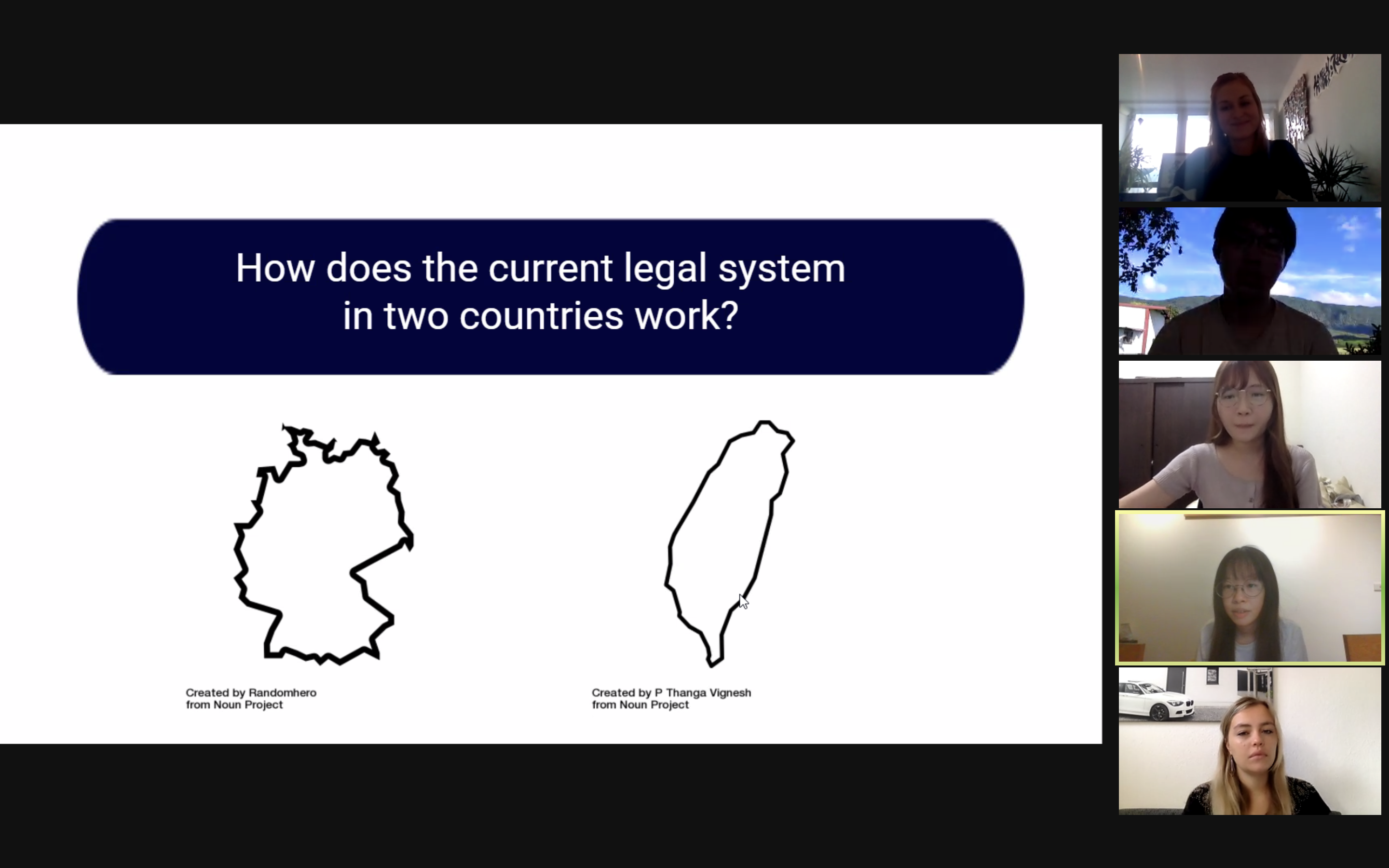
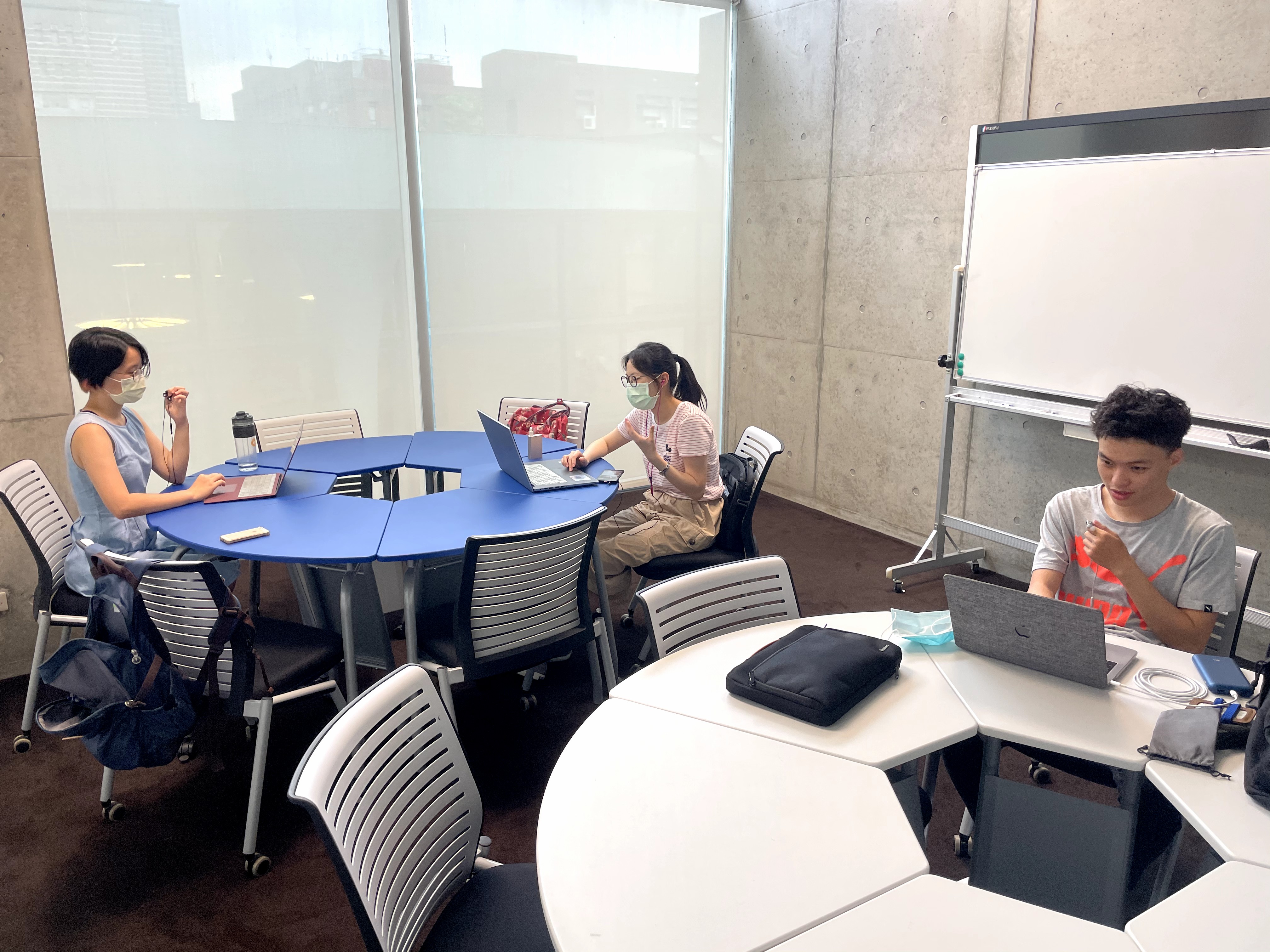
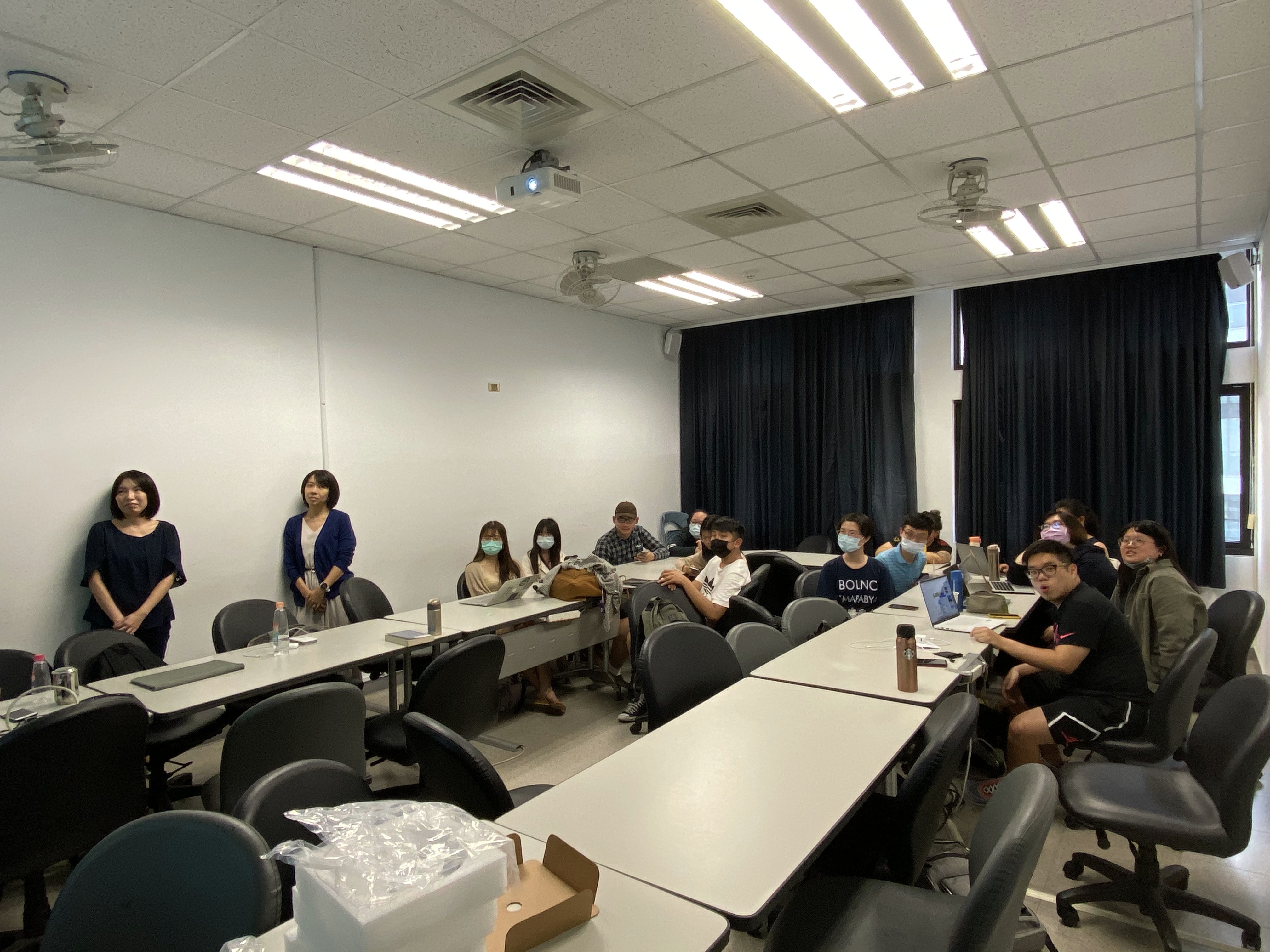
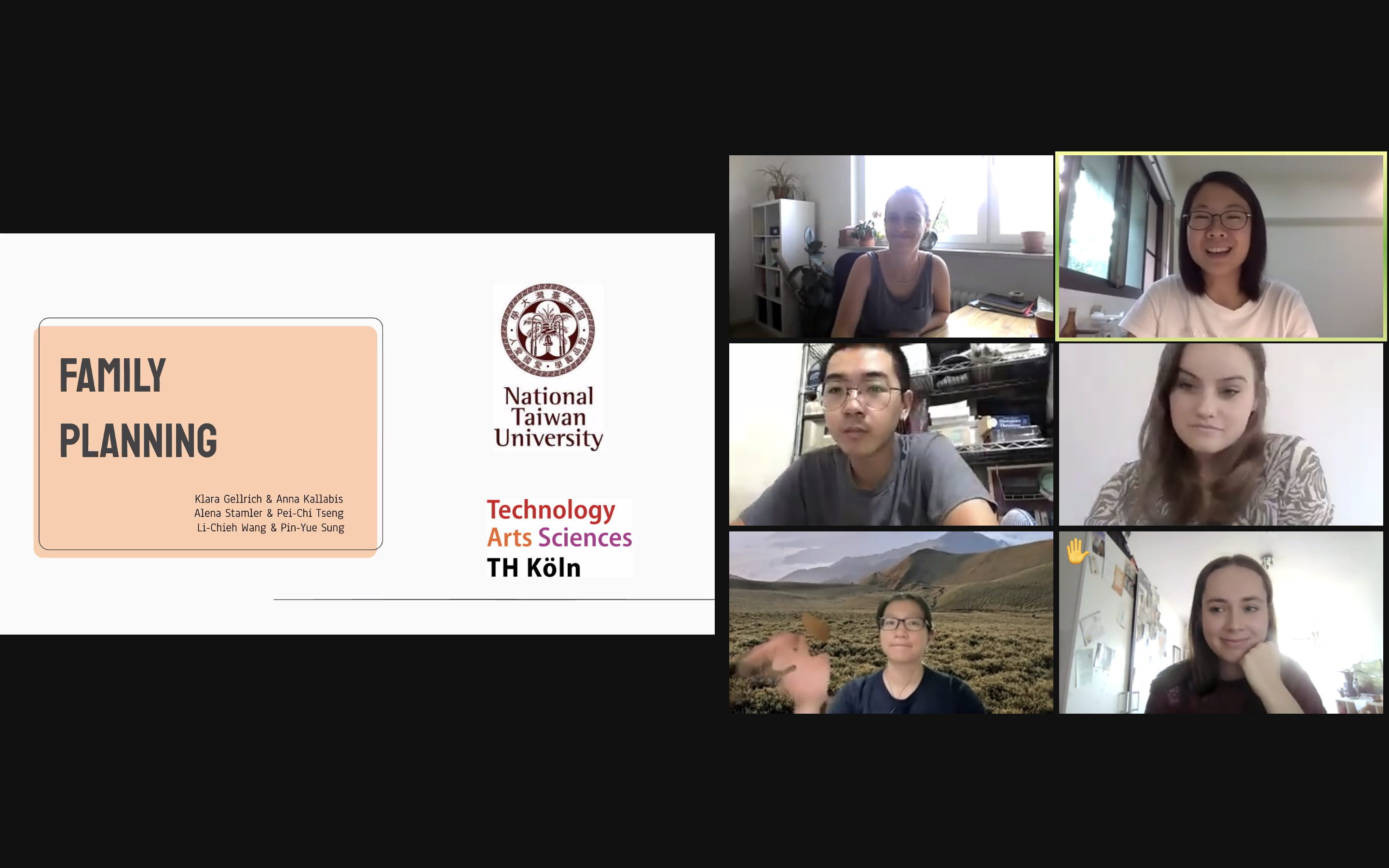
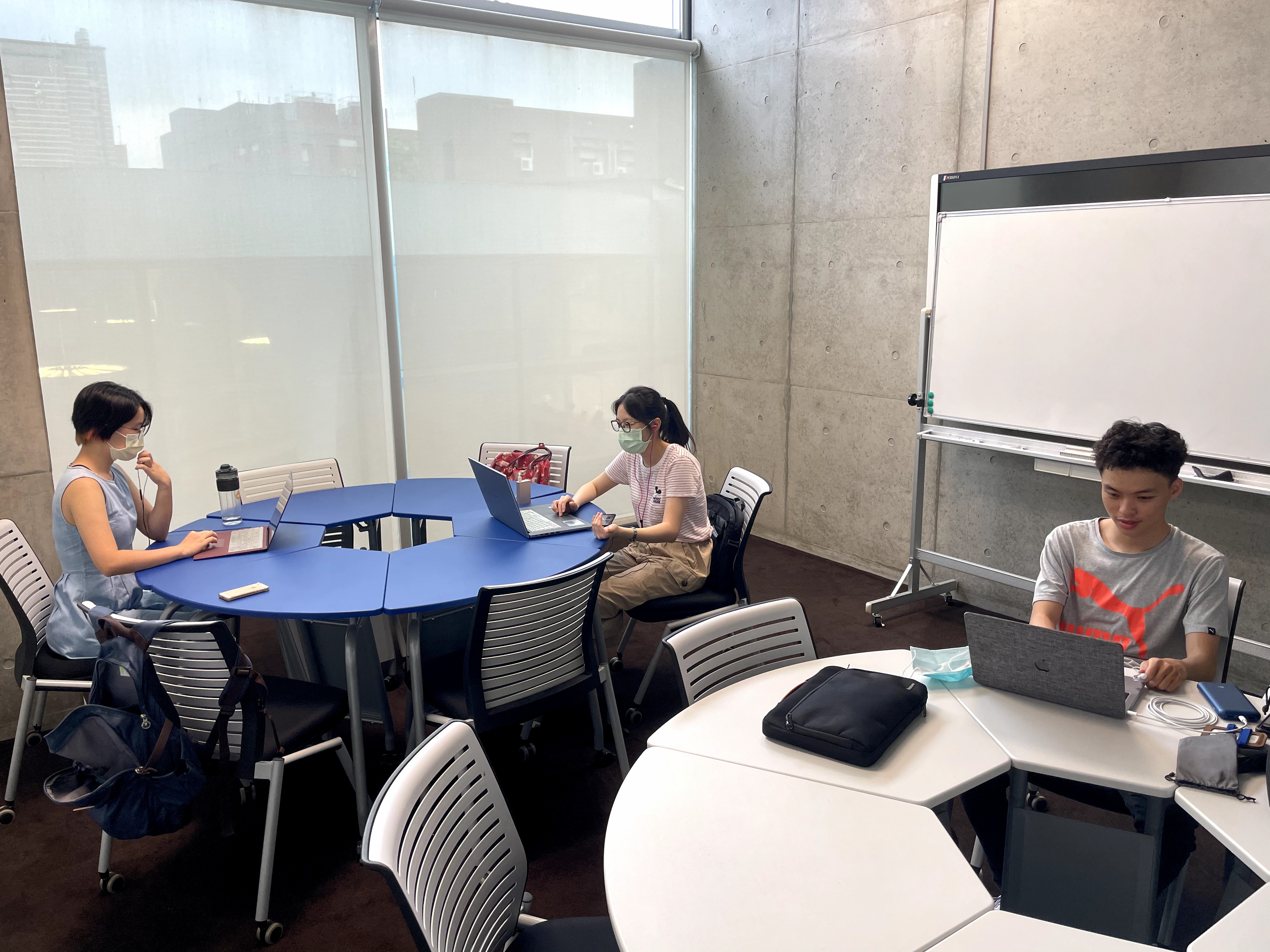
.jpg)


